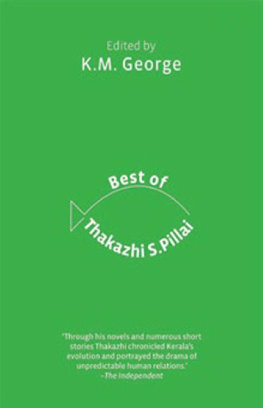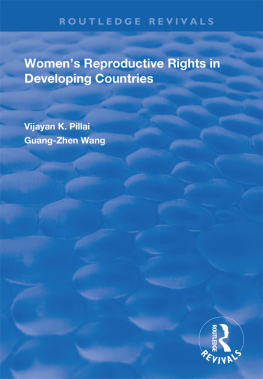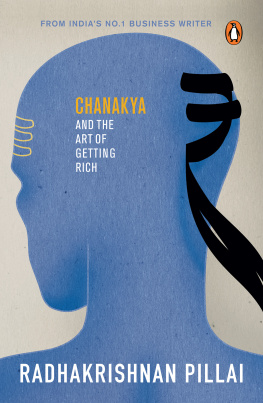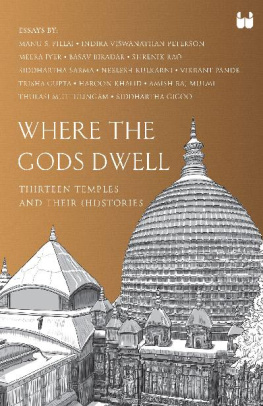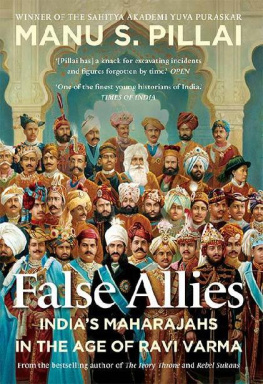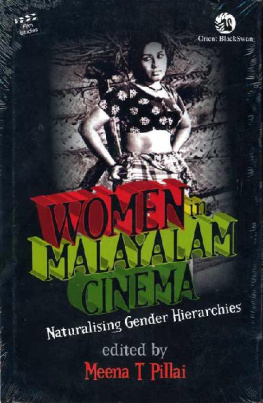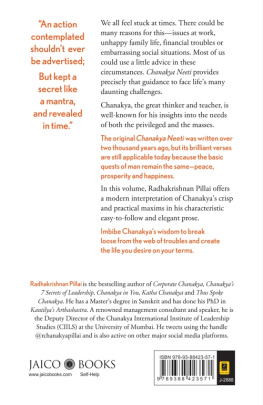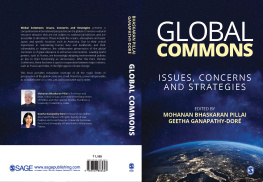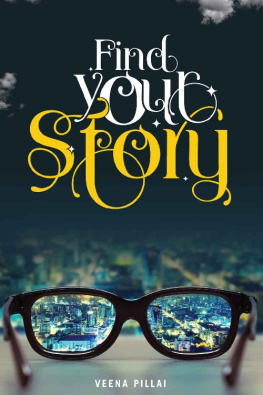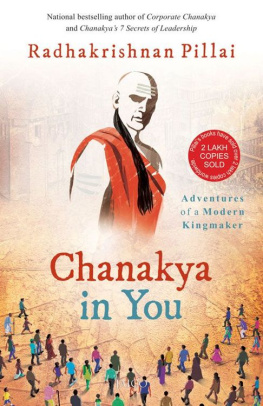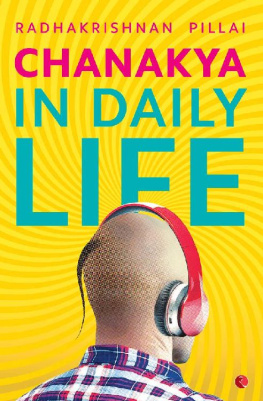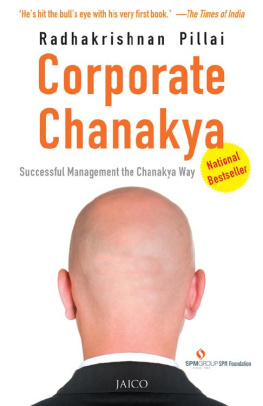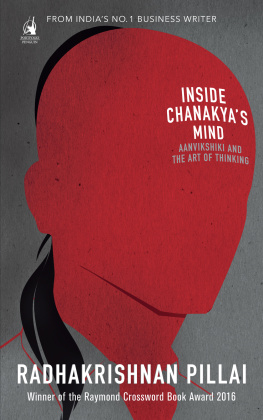K. M. George - Best of Thakazhi S. Pillai
Here you can read online K. M. George - Best of Thakazhi S. Pillai full text of the book (entire story) in english for free. Download pdf and epub, get meaning, cover and reviews about this ebook. year: 2011, publisher: Roli Books, genre: Detective and thriller. Description of the work, (preface) as well as reviews are available. Best literature library LitArk.com created for fans of good reading and offers a wide selection of genres:
Romance novel
Science fiction
Adventure
Detective
Science
History
Home and family
Prose
Art
Politics
Computer
Non-fiction
Religion
Business
Children
Humor
Choose a favorite category and find really read worthwhile books. Enjoy immersion in the world of imagination, feel the emotions of the characters or learn something new for yourself, make an fascinating discovery.
- Book:Best of Thakazhi S. Pillai
- Author:
- Publisher:Roli Books
- Genre:
- Year:2011
- Rating:4 / 5
- Favourites:Add to favourites
- Your mark:
- 80
- 1
- 2
- 3
- 4
- 5
Best of Thakazhi S. Pillai: summary, description and annotation
We offer to read an annotation, description, summary or preface (depends on what the author of the book "Best of Thakazhi S. Pillai" wrote himself). If you haven't found the necessary information about the book — write in the comments, we will try to find it.
Best of Thakazhi S. Pillai — read online for free the complete book (whole text) full work
Below is the text of the book, divided by pages. System saving the place of the last page read, allows you to conveniently read the book "Best of Thakazhi S. Pillai" online for free, without having to search again every time where you left off. Put a bookmark, and you can go to the page where you finished reading at any time.
Font size:
Interval:
Bookmark:


| OTHER LOTUS TITLES | |
Ajit Bhattacharjea | Sheikh Mohammad Abdullah: Tragic Hero of Kashmir |
| Amarinder Singh | The Last Sunset: The Rise and Fall of the Lahore Durbar |
| Anil Dharker | Icons: Men & Women Who Shaped Todays India |
| Aitzaz Ahsan | The Indus Saga: The Making of Pakistan |
| Alam Srinivas & TR Vivek | IPL: The Inside Story |
| Amir Mir | The True Face of Jehadis: Inside Pakistans Terror Networks |
| Ashok Mitra | The Starkness of It |
| Dr Humanyun Khan & G. Parthasarthy | Diplomatic Divide |
| Gyanendra Pandey & Yunus Samad | Faultlines of Nationhood |
| H.L.O. Garrett | The Trial of Bahadur Shah Zafar |
| Hindustan Times Leadership Summit | Vision 2020: Challenges for the Next Decade |
| M.J. Akbar | India: The Siege Within |
| M.J. Akbar | The Shade of Swords |
| M.J. Akbar | Byline |
| M.J. Akbar | Blood Brothers: A Family Saga |
| Maj. Gen. Ian Cardozo | Param Vir: Our Heroes in Battle |
| Maj. Gen. Ian Cardozo | The Sinking of INS Khukri: What Happened in 1971 |
| Madhu Trehan | Tehelka as Metaphor |
| Mushirul Hasan | India Partitioned. 2 Vols |
| Mushirul Hasan | John Company to the Republic |
| Mushirul Hasan | Knowledge, Power and Politics |
| Nayantara Sahgal (ed.) | Before Freedom: Nehrus Letters to His Sister |
| Nilima Lambah | A Life Across Three Continents |
| Robert Hutchison | The Raja of Harsil: The Legend of Frederick Pahari Wilson |
| Sharmishta Gooptu and Boria Majumdar (eds) | Revisiting 1857: Myth, Memory, History |
| Shrabani Basu | Spy Princess: The Life of Noor Inayat Khan |
| Shashi Joshi | The Last Durbar |
| Shashi Tharoor & Shaharyar M. Khan | Shadows across the Playing Field |
| Shyam Bhatia | Goodbye Shahzadi: A Political Biography |
| Thomas Weber | Gandhi, Gandhism and the Gandhians |
| Thomas Weber | Going Native: Gandhi's Relationship with Western Women |
| FORTHCOMING TITLES | |
| Sudhir Kakar (ed) | Indian Love Stories |
| V.S. Naravane | Best Stories from the Indian Classics |
| Rudyard Kipling | Kipling's India |
Roli Books for translation of stories 1999
This paperback edition first published in 2012
may be reproduced or transmitted, in any form or by any
means, without the prior permission of the publisher.
An imprint of Roli Books Pvt. Ltd.
M-75, Greater Kailash II Market, New Delhi 110 048
Phone: ++91 (011) 4068 2000. Fax: ++91 (011) 2921 7185
E-mail: info@rolibooks.com; Website: www.rolibooks.com
Also at Bangalore, Chennai & Mumbai
Layout: Sanjeev Mathpal
Production: Shaji Sahadevan
Font size:
Interval:
Bookmark:
Similar books «Best of Thakazhi S. Pillai»
Look at similar books to Best of Thakazhi S. Pillai. We have selected literature similar in name and meaning in the hope of providing readers with more options to find new, interesting, not yet read works.
Discussion, reviews of the book Best of Thakazhi S. Pillai and just readers' own opinions. Leave your comments, write what you think about the work, its meaning or the main characters. Specify what exactly you liked and what you didn't like, and why you think so.

